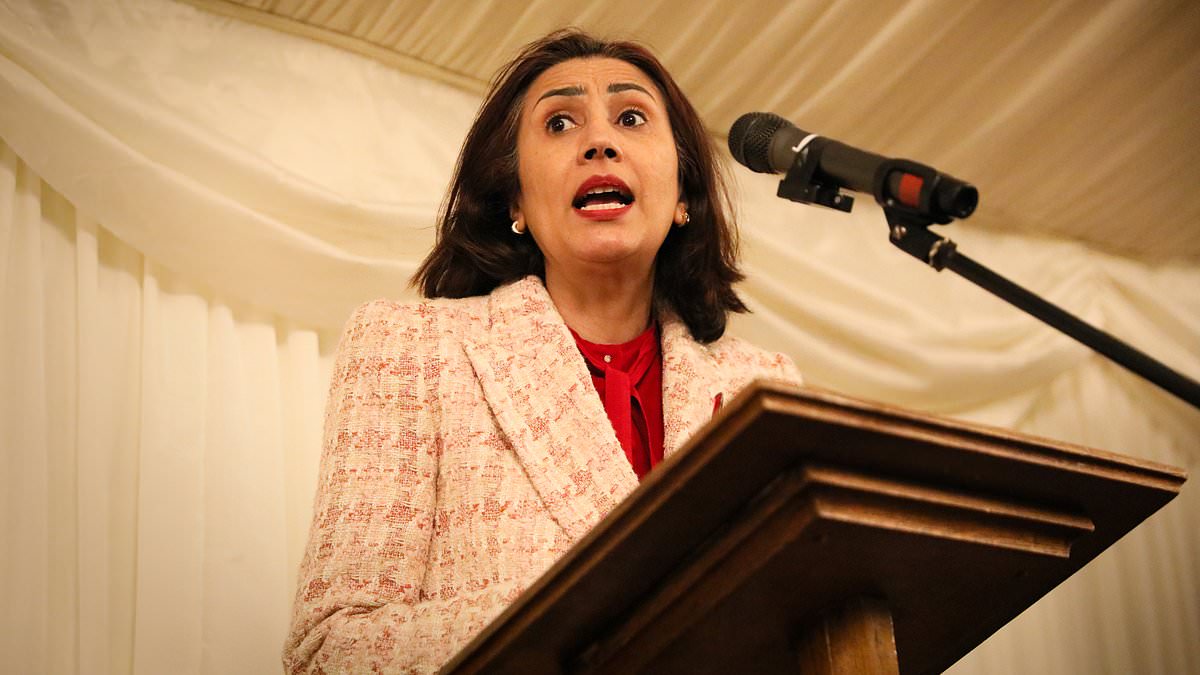What started as a routine police intervention at Manchester Airport has turned into a national flashpoint—raising questions about police conduct, political judgment, and how far the public should go in making early calls on race and brutality before all the facts are in.
Controversial Comparisons Emerge Before Trial Verdicts
Baroness Shaista Gohir, a government advisor on Islamophobia and CEO of the Muslim Women’s Network UK, stirred serious debate when she compared the police’s actions in the July 2023 Manchester Airport incident to the murder of George Floyd.
She described the situation as having “remnants of the George Floyd murder,” quickly labeling it as “police brutality”—well before all the evidence had been reviewed.
Her statement echoed broader criticism from several Labour politicians and campaigners, who raised the alarm about the police’s conduct after a video emerged showing an officer kicking a man during the arrest.
But critics argue that many of these reactions came too early—before the full CCTV footage and courtroom evidence were presented.
The Airport Assault and the Guilty Verdict
The heart of the story is 20-year-old Mohammed Fahir Amaaz, who was found guilty of assaulting two female police officers—PC Lydia Ward, whose nose he broke, and PC Ellie Cook, who suffered facial bruises.
The attack happened after police tried to arrest Amaaz over an earlier incident involving a passenger at a Starbucks inside the airport.
Amaaz’s brother, Muhammed Amaad, 26, was also involved, and the pair had been at the airport to pick up their mother.
Things escalated when officers attempted to detain them.
While the jury convicted Fahir Amaaz for the assault on two officers, they couldn’t agree on the charges related to another officer, PC Zachary Marsden, meaning a retrial is now on the table.
A Video, a Kick, and a Firestorm
Shortly after the arrests, footage surfaced showing PC Marsden kicking Amaaz in the head during the scuffle, which triggered intense scrutiny and anti-police protests.
Labour MP Paul Waugh called the video “truly shocking” in the Commons, saying it raised deep concerns about use of force. Fellow MP Lucy Powell echoed his remarks and promised to raise the issue with the Home Secretary.
Even Shadow Home Secretary Yvette Cooper weighed in, acknowledging “widespread distress” and promising to speak with police about next steps—though her statement, notably, didn’t mention the injured officers.
Political Backlash Against Labour’s Response
After Wednesday’s verdicts, Conservative MP Chris Philp slammed Cooper, accusing her of showing more concern for the suspects than for the injured officers.
“It is shameful Yvette Cooper’s statement did not include any mention of the officers who were attacked,” he said, arguing that her priorities were misaligned.
Robert Jenrick added that Labour MPs who were quick to judge police without knowing the full story “should be ashamed.”
Cooper responded firmly, telling Times Radio that she has always supported police officers and that she’d personally spoken with Greater Manchester Police to ensure they’re getting proper support.
“They face appalling situations every day,” she said, “and they deserve recognition for that.”
Debate Grows Over Role of Islamophobia Advisors
Baroness Gohir, who made the George Floyd comparison, is currently part of a government working group tasked with defining Islamophobia.
But her swift and provocative comments raised eyebrows—especially given her influential role.
Critics, including Conservative MP Claire Coutinho, worry the working group includes individuals with “extreme views” that could risk stifling free speech.
Communities Secretary Angela Rayner has tried to reassure the public, saying the panel will provide “evidence-based advice.”
Gohir later doubled down, warning that public praise of the police response—such as from Reform Party MP Richard Tice—could fuel more racism and Islamophobia.
Labour MP Joins Early Critics of Police
Afzal Khan, Labour MP for Rusholme, was among the first to post concerns online.
The day after the arrest, he tweeted that the police appeared to be using “excessive force against an unarmed civilian.”
His comments were made before the full CCTV footage surfaced and before the trial revealed that the man in question had assaulted two officers and another civilian in a café.
Police Push Back Against Early Judgments
After the verdicts, Greater Manchester Police Chief Constable Sir Stephen spoke out.
While expressing disappointment that the jury didn’t convict on all counts, he said he welcomed the guilty verdict and transparency.
“Our officers were responding to an unprovoked assault in a public place,” he said.
“These are the kinds of incidents the public rightly expect us to act on.”
He also highlighted the alarming frequency of violence against officers: 44 police officers are assaulted every week across Greater Manchester.
“Such attacks can never be justified,” he added.
Police Federation Urges Public and Political Support
Mike Peake, chair of the Greater Manchester Police Federation, didn’t hold back in his response either.
He called the job officers do “difficult, dangerous, and dynamic,” and emphasized how emotionally and physically draining it can be.
“We are bloodied and we are bruised,” he said.
“The public and our politicians need to stand behind us when we put ourselves in harm’s way.”
The Bigger Picture: Policing, Race, and Public Reaction
The Manchester Airport incident has snowballed into something bigger than one violent encounter.
It has sparked an ongoing national conversation about how quickly we react to partial information, how political narratives shape public opinion, and what kind of oversight should exist in law enforcement.
With retrials still pending and debates about Islamophobia policies continuing, this story is far from over.
But one thing is clear—policing, politics, and public trust remain tightly and tensely intertwined.
